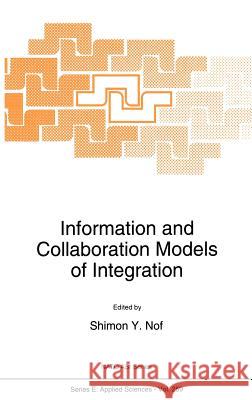Information and Collaboration Models of Integration » książka
Information and Collaboration Models of Integration
ISBN-13: 9780792327530 / Angielski / Twarda / 1994 / 476 str.
The objective of this book is to bring together contributions by eminent researchers from industry and academia who specialize in the currently separate study and application of the key aspects of integration. The state of knowledge on integration and collaboration models and methods is reviewed, followed by an agenda for needed research that has been generated by the participants. The book is the result of a NATO Advanced Research Workshop on "Integration: Information and Collaboration Models" that took place at II Ciocco, Italy, during June 1993. Significant developments and research projects have been occurring internationally in a major effort to integrate increasingly complex systems. On one hand, advancements in computer technology and computing theories provide better, more timely, information. On of users and clients, and the the other hand, the geographic and organizational distribution proliferation of computers and communication, lead to an explosion of information and to the demand for integration. Two important examples of interest are computer integrated manufacturing and enterprises (CIM/E) and concurrent engineering (CE). CIM/E is the collection of computer technologies such as CNC, CAD, CAM. robotics and computer integrated engineering that integrate all the enterprise activities for competitiveness and timely response to changes. Concurrent engineering is the complete life-cycle approach to engineering of products. systems. and processes including customer requirements, design. planning. costing. service and recycling. In CIM/E and in CE, computer based information is the key to integration.











